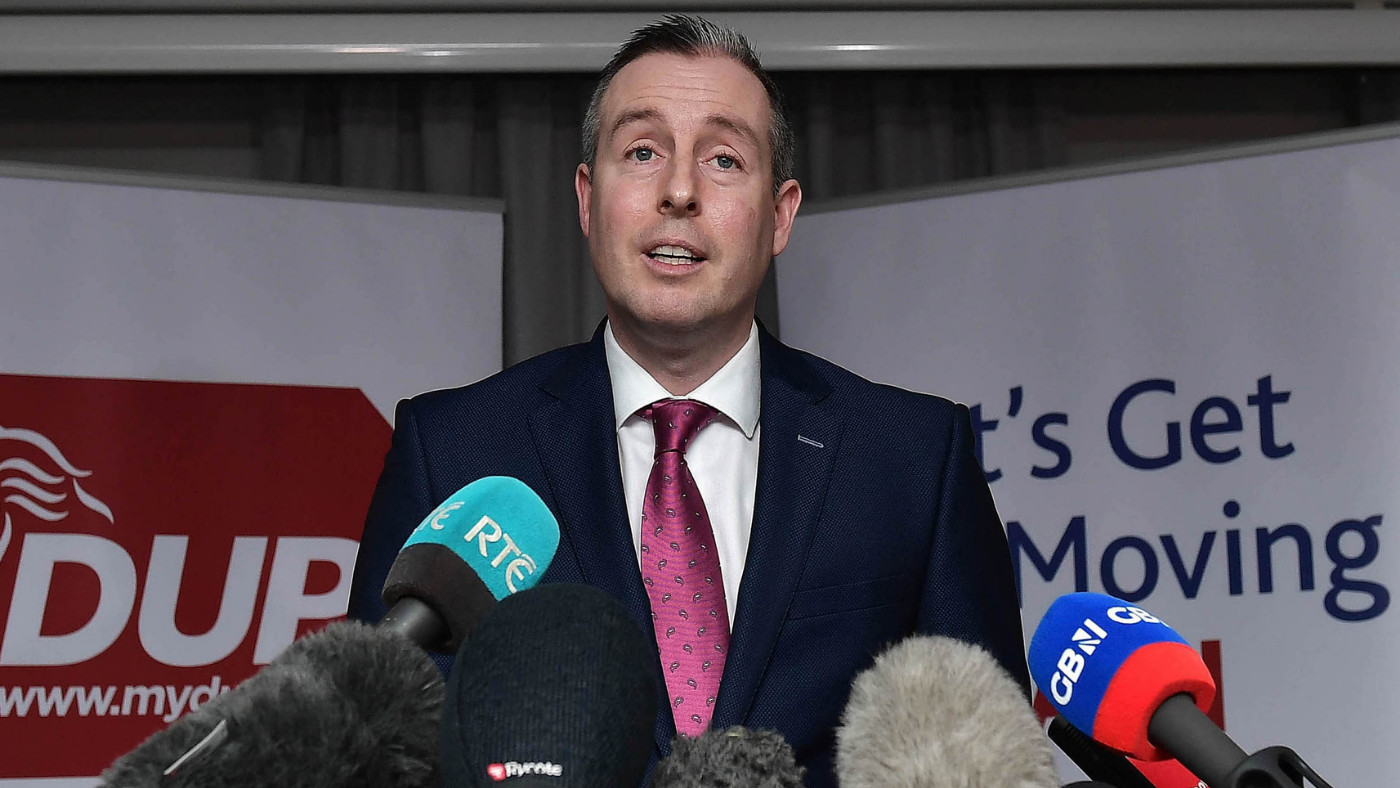What’s happening in Northern Ireland?
Resignation of first minister plunges devolved government into ‘turmoil’

A free daily email with the biggest news stories of the day – and the best features from TheWeek.com
You are now subscribed
Your newsletter sign-up was successful
Paul Givan has resigned as Northern Ireland’s first minister, adding to the political crisis in the province a day after agriculture minister Edwin Poots was accused of breaking international law by ordering an end to post-Brexit checks on goods entering the country from the rest of the UK.
Thursday marked “the end of what has been the privilege of my lifetime”, Givan said at a press conference. He hoped for “a resolution to the issues that have regrettably got us to this point” – namely disagreements about the Northern Ireland Protocol, created by the UK-EU Brexit deal.
Givan’s resignation is “part of the Democratic Unionist Party’s protest” against the protocol, said the BBC. The DUP leader Sir Jeffrey Donaldson said yesterday that the arrangement “represents an existential threat to the future of Northern Ireland’s place within the Union”.
The Week
Escape your echo chamber. Get the facts behind the news, plus analysis from multiple perspectives.

Sign up for The Week's Free Newsletters
From our morning news briefing to a weekly Good News Newsletter, get the best of The Week delivered directly to your inbox.
From our morning news briefing to a weekly Good News Newsletter, get the best of The Week delivered directly to your inbox.
After months of unresolved talks between London and Brussels, on Wednesday Poots ordered a halt to checks on food and farming goods between the UK and Northern Ireland, a move that “was strongly condemned by the Irish Government”, said the Irish Times. Foreign affairs minister Simon Coveney described it as a “breach of international law”.
Peace under pressure
The country’s “institutions are being tested once again”, Givan said on Thursday, before his resignation came into effect at midnight. The deputy first minister, Sinn Fein’s Michelle O’Neill, will automatically lose her position due to the power-sharing arrangements that link the two roles.
In a statement from Westminster, Northern Ireland Secretary Brandon Lewis said he recognised “the impact the Northern Ireland Protocol is having on the ground” and offered an assurance that the UK government remains “fully committed to fixing the problems” with the agreement.
A free daily email with the biggest news stories of the day – and the best features from TheWeek.com
The news plunges Stormont “into turmoil two years after power-sharing with Sinn Fein was restored”, said The Guardian. New legislation from Westminster will “avoid a repeat of crash collapses” of the assembly, which will be allowed to continue for an initial six-week period, with the possibility of extending this to 24 or 48 weeks, said the BBC.
The new system, agreed in January 2020, was meant to provide a safety net, but “it will be far from business as usual” in the province, the BBC added. The Stormont executive cannot meet without a first and deputy first minister, and decision-making will be paused. Givan’s resignation essentially “ushers in a temporary state of paralysis in Northern Irish politics”, said The New Statesman.
In response to the news, Sinn Fein’s president, Mary Lou McDonald, has called for the next election of the assembly to be brought forward from its scheduled date of 5 May. But “there’s little to no chance” of that happening, said the magazine.
Julia O'Driscoll is the engagement editor. She covers UK and world news, as well as writing lifestyle and travel features. She regularly appears on “The Week Unwrapped” podcast, and hosted The Week's short-form documentary podcast, “The Overview”. Julia was previously the content and social media editor at sustainability consultancy Eco-Age, where she interviewed prominent voices in sustainable fashion and climate movements. She has a master's in liberal arts from Bristol University, and spent a year studying at Charles University in Prague.